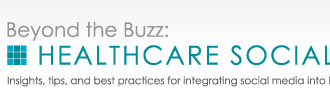One of the Internet?s most powerful benefits is that it democratizes knowledge, making it readily available to those seeking information. Naturally, this extends to the medical realm. Having access to helpful resources to optimize our health and wellbeing is incredibly empowering, and can support us to enact positive changes in diet, lifestyle, and habit.
However, a little knowledge can also be a dangerous thing. When it comes to diagnosing what ails us using online symptom checkers, it?s vital to understand that there are serious risks involved. A 2013 Pew Research Center study into Americans? online health behaviors revealed that approximately 35% of U.S. adults had gone online with the intention of self-diagnosing a medical condition; and that women were more likely than men to self-diagnose.
Unfortunately, the accessibility of medical knowledge teamed with a lack of background in medicine can be a dangerous combination–leading to a phenomenon some commentators are calling cyberchondria.
Cyberchondria is the digital manifestation of hypochondria, with online diagnoses leading people to think they are sicker than they actually are, and take unnecessarily extreme measures. Unfortunately, many individuals innocently seeking intel on symptoms, diagnoses and prognoses online fall prey to cyberchondria, primarily because Google?s search engine results do not rank diseases according to prevalence but rely on search engine algorithms that operate according to different criteria. The result? When you diligently type in your symptoms, you may come across obscure or severe conditions at the top of the search results that correlate with your symptoms.
This, however, is no indication that you necessarily have that illness. Misdiagnosis is one of the most likely outcomes of self-diagnosis. Common examples include:
- Iron deficiency (anemia) being confused with chronic fatigue disorder
- Headaches being confused with a brain tumor
- A heavy period being confused with ovarian cancer
Self-misdiagnosis can result in panic, fear or anxiety about having a condition that is more serious than you actually have. This leads to afflicted individuals taking inappropriate medicine or undergoing unnecessary treatments that cause other side effects and leave the actual condition untreated. In rare cases where you have misdiagnosed symptoms that are representative of a more serious condition, you deprive your body of receiving the treatment it needs, delaying your return to wellness.
Research has also proven that those who become convinced that they have a serious illness may become paralyzed with anxiety and fear, delaying a visit to the doctor or avoiding the doctor altogether. Of the 35% of Americans who self-diagnose online, 38% refrained from seeing a doctor as they believed the condition was something they could take care of at home. Avoiding the doctor prevents you from accurately identifying the source of your symptoms, and assuming the appropriate course of action.
While it?s useful and empowering to refer to health resources on the Internet to be informed about your health, it?s vital to be discerning. Use online health resources as a starting point, but not a final diagnostic tool. Health information portals such as Medline Plus and OpenMD.com can help you to locate credible medical resources and may serve as a launching point for understanding your symptoms so you are better equipped to discuss your health concerns with your doctor and hear their opinion.
Conclusion
Medical professionals are experts who have spent thousands of hours as residents observing and diagnosing patients, becoming familiar with the intricacies of pathogens and how they express themselves. Their nuanced understanding of symptoms takes into consideration various contributing factors such as age, gender, background, and stress. If you?re worried about a persistent pain, rash, or cough, there really is no substitute for talking with your GP.









